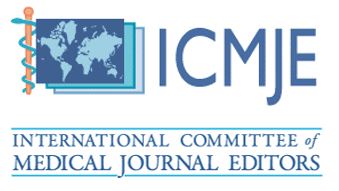Intensive Care Management of Posterior Reversible Encephalopathy Syndrome in Eclampsia and HELLP Syndrome: A Case Series of a District Hospital in Sabah
DOI:
https://doi.org/10.51200/bjms.vi1.5026Keywords:
posterior reversible encephalopathy syndrome, eclampsia, HELLP syndrome, intensive careAbstract
Posterior reversible encephalopathy syndrome (PRES) is a medical condition characterised by a range of neurological symptoms and typical findings in brain imaging studies. In pregnant patients, a common cause of PRES is eclampsia. This case series presents a cohort of pregnant patients diagnosed with PRES and discusses the pertinent issues for their management in the intensive care unit (ICU) setting. A total of four patients were presented to our institution, all of them had status epilepticus as a result of eclampsia and HELLP syndrome. Further investigations revealed radiological features indicative of PRES. One patient experienced stillbirth, while another encountered intrauterine foetal death necessitating termination of the pregnancy by hysterotomy. All patients were intubated and admitted to the ICU for stabilisation and further care. During their stay, no additional seizures were seen with prompt blood pressure optimisation. They were successfully weaned and extubated. One patient required a brief duration of non-invasive ventilation (NIV) due to stress cardiomyopathy. Nevertheless, all patients experienced full neurological recovery and were discharged to the general ward within a week. A late presentation of PRES in eclampsia may progress into adverse maternofoetal outcomes, which often occur in lower socioeconomic populations. Early brain imaging such as computed tomography and magnetic resonance imaging will aid its diagnosis since the symptoms may mimic other neurological disorders. Immediate mainstay of treatments include early ICU admission, prompt seizure control, blood pressure stabilisation, and expedited delivery by obstetricians. Weaning and recovery are usually fast but may be complicated by altered mental status and stress cardiomyopathy, which are often reversible. Physicians must have a high index of suspicion of PRES, particularly in patients presenting with eclampsia and HELLP syndrome. If promptly identified and managed, PRES typically exhibits complete reversibility and a favourable prognosis even in resource-limited settings.
Downloads
Published
How to Cite
Issue
Section
License
All articles are published under the Creative Commons Attribution-NonCommercial (CC BY-NC 4.0) license, enabling users to read, download, copy, distribute, and adapt the material for non-commercial purposes, provided proper credit is given to the original authors and the source. This model supports transparency, accessibility, and the global exchange of medical knowledge.








1.png)





